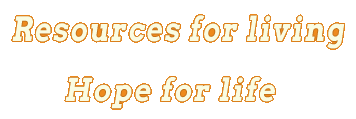Are we listening
February 13th, 2012
She just kept getting louder and more abusive to our aging volunteer. Other clients and people in the building stopped what they were doing, interrupted conversations and focused their attention on the scene that was going on at the check-out of our large food pantry. The volunteer was red-faced. What had she done to elicit this behavior? Both women were verging on tears. This was one of those situations that happens very infrequently, but makes a lasting negative impression on volunteers (“I never want to work check-out again.”); clients (“Your volunteers don’t care about what I have to say.”); on-lookers (“Whose side should I be on in this ‘battle’?); and staff (“In my head I’m creating a check list of damage control procedures that I know will take four hours of my already scarce time.”)
Can you hear me now?
Most of the time when people raise their voices it is out of a sense of not being heard. Like trying to get a point across to a table-mate in a noisy restaurant, we increase our volume to be heard. Most of us have experienced this in family discussions that escalate into arguments. We speak louder and more passionately, over-riding interruptions, and usually making more sweeping statements from our desire to be heard.
People who are coping with poverty and all its daily ramifications often feel more voiceless than others who are not poor by their own definition. Sometimes they accept or even internalize their sense of not being valued by others. At other times they speak out and up and even get loud to make people in power stop and listen.
In the incident above, our Program Director Shawn Keener, became aware of the altercation, and calmly addressed the client, in a very quiet voice, she said, “I’m so sorry that things are not going as you had hoped today. Would you like to come to my office and tell me what I can do to help make things better?” To the volunteer she said, “Would you like to take a little break, Lois? Mark can take over for you here for a while.”
Our client’s last words to Shawn that day were, “Thank you for listening. I’m sorry I made such a scene.” She left feeling heard.
For far too long we “helpers” in church and community organizations have provided what we think people need. Most of the time we have not stopped to hear directly from our neighbors what they are thinking and feeling and what their perceived needs really are.
Getting our “listen” on
Fortunately the days of pushing a box full of whatever groceries are available across a counter to client number 107 has mostly gone the way of other patronizing charitable activity. In our client-choice pantry people push a cart through well-stocked shelves and choose the groceries that their family will want to eat. That is a start. The process came from listening to the people who receive our services. It began with our asking specifically, “How can we improve? How can we make your experience here at UCOM better?”
Having conversations/Encouraging dialogue
UCOM’s programs too grow out of conversations with our neighbors who utilize our services. It really is pretty presumptuous to provide services based on what we think people in our community need. We don’t usually use focus groups for this purpose (though we do provide comment cards so people can systematically “grade” us and help us to improve their experiences with us). Instead, we just ask our neighbors one at a time how we can be more present for them, and then we listen.
A friend with mobility disabilities remarked at the end of a conversation with me, “I can’t tell you how good it feels to have a chance to talk to you about how UCOM can be more welcoming to volunteers with disabilities. I’m 55 years old and nobody ever asked me for my insights before.”
If we really want to be present for people who are grappling with poverty, disabilities, addictions, and any other difficult situations, our first step is to ask the right questions to the involved people and then to be quiet and listen actively, probing only for clarity, and then act on what we hear.
Listening is the first tool in proving our immediate and lasting worth to our neighbors—locally and globally. In the next posting, I want to touch on another instrument for empathy: affirming the value of all of our neighbors and helping them to feel good about themselves. It is all about dignity. It is all about treating others with the same respect with which we hope they will treat us.





Comments
#1 Bruce Roller said:
#2 Melissa Anderson said:
Leave a Comment